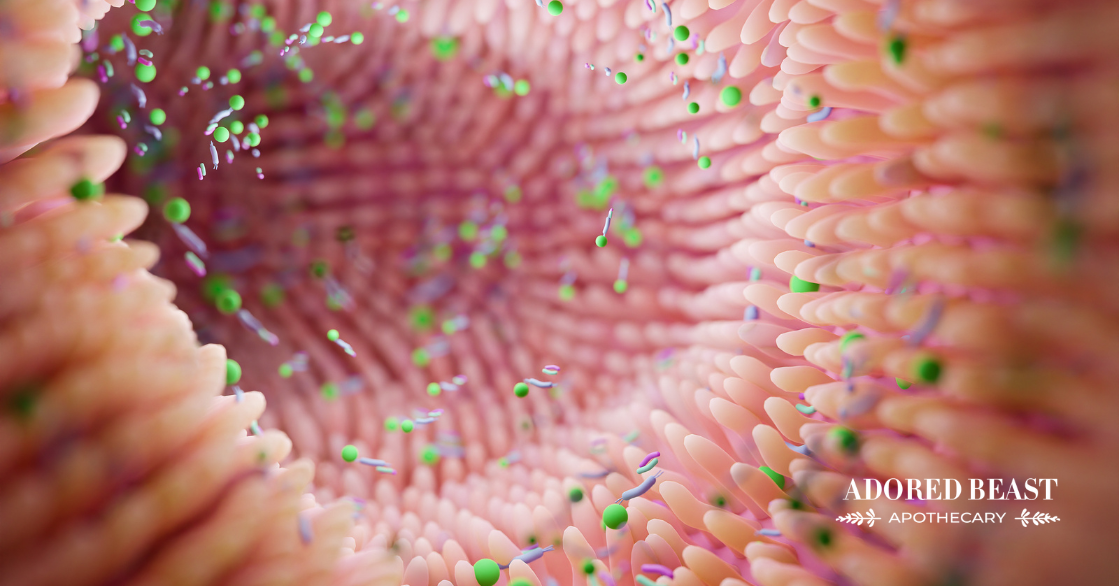Have you heard us talk about CFUs before? Or have you ever glanced at the label of a probiotic supplement and wondered what in the world those mysterious “CFUs” were all about?
What are CFUs?
Today, we’re diving into the world of Colony Forming Units (CFUs). We’re unraveling the secrets behind these tiny microbial powerhouses and why they matter in the realm of probiotics. Get ready for some science!
What are CFUs?
Colony Forming Units (CFUs) are a standard unit of measurement used to estimate the viable microorganisms in a sample. CFU represents the number of bacteria in a sample that are capable of dividing and forming colonies.
Calculating CFUs involves a series of dilutions and plating techniques. In simple terms, a known volume of the probiotic product is diluted, and then a portion of that dilution is plated onto a growth medium. The resulting colonies that form are counted, and the CFU count is calculated based on the dilution factor. Modern techniques also involve using specialized equipment like flow cytometers to automate and refine the counting process.
In the context of probiotics specifically, CFUs refer to the number of live and active bacteria or yeast that are capable of forming colonies under specific conditions. Essentially, it’s a way to quantify the potency of the probiotic supplement. So when you see the number of CFUs listed on a bottle or jar of probiotics, you know that there are at least that many live and active bacterial units in that container! Each “unit” represented by the CFU value refers to a single replicating bacteria. When it comes to probiotics, 1 billion CFU would indicate an estimated 1 billion bacteria within each serving.
[RELATED] What’s the Best Probiotic for Dogs (& When Should You Use it)?
CFUs and Probiotics: The Dynamic Duo
When you choose a probiotic supplement for yourself or your pet, you’re essentially introducing a battalion of beneficial microorganisms into the digestive system. These microorganisms, which we often call “good bacteria” or “friendly bacteria,” work their magic by supporting a healthy balance in the gut microbiome. The CFU count tells you how many of these friendly troops are ready for action.
Now, here’s the exciting part: a higher CFU count can mean a greater concentration of live and active microorganisms reaching the gut, where they can get to work supporting digestion, nutrient absorption, and overall gut health.
But… this is where it gets tricky. It just isn’t as simple as picking the probiotic with the highest CFUs. The strains are also really important. They actually dictate how much is needed to be as effective. Take our Love Bugs and Fido’s Flora as the perfect example. Love Bugs features 14 strains with 30 billion CFUs, whereas Fido’s Flora features a multi-strain probiotic blend including species-specific patented probiotics, with 2 billion CFUs.
You might think, reading that, that Love Bugs is more effective because it has many more CFUs. But, because the strains in Fido’s Flora are species-specific, fewer CFUs are needed to effectively get to where they need to go. They both do a great job, but the strains themselves tell us how many CFUs we want in the jar.
So, when shopping for probiotic supplements, opting for those with a high CFU count can be a smart move. This ensures that you’re providing your pet’s digestive system (or your own if you’re shopping for yourself) with a robust and diverse community of good bacteria, enhancing the chances of reaping the full spectrum of benefits associated with probiotics. That said, you also want to pay attention to the types of strains used, and let that inform your purchasing decision as well.
CFUs might seem like a complex scientific term, but understanding their significance empowers you to make informed choices when selecting probiotic supplements for yourself and your animals. So, the next time you peruse the probiotics aisle, you won’t be wondering “what are CFUs” – now you know! So keep an eye out for those high CFU counts – your pet’s gut will thank you for the microbial support!












